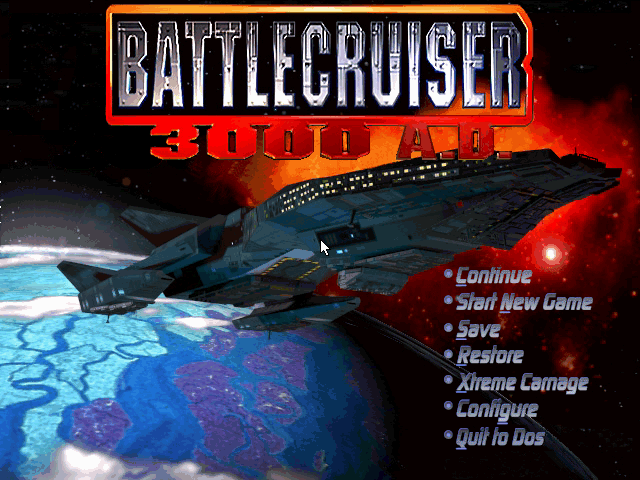
FNR: Complaining about sequels is criminally irresponsible
I hear you get more readers when you’re angry. I had to harness some pretend rage here, so just play along.
Let’s say you spend years developing a successful computer. Your engineers make the machine super efficient; your designers make everything look and work beautifully. The computer is a hit; everyone’s using it, you have to build new factories just to produce all the components.
For your next product, Computer 2, you and your product development committee decide that computing is nice, but you need to innovate. You need to experiment with doing new things and not remain in the same rut of just releasing a slightly better computer. Computer 2, released to a huge marketing budget and global fanfare, is a beautifully designed butterfly net. You can wave it over your head to catch butterflies. The hundreds of engineers you have on staff use all the experience they gained from Computer 1 to get it down to just 1 pound (2.2kg).

It’s way better than the Melissa & Doug computer. (What did we do before Amazon?)
This is what I think when I hear ranting about video game sequels
Bemoaning the “lack of experimentation” and the “sameness” of triple-A video game releases and sequels is criminally irresponsible. And dumb.
Recently I was listening to Retronauts, a podcast about old video games, talking about great video game flops in history. (Good podcast, worth a listen) The first game they talked about, Shenmue, was one of the first open world games – you’re not jumping from platform to platform dodging fireballs, you’re a guy walking around a town in Japan talking to people. Released in 1999, Shenmue was known for being an ambitious, experimental game that received critical acclaim and has since been featured in several “best games ever” lists.

Despite this, the game sold poorly. It took an unprecedented $70 million and 5 long years to release a game that sold only about 1.2 million copies worldwide. Because the game sold so spectacularly poorly and took so darn long, did the Japanese game industry stop taking risks with major releases?
If they did, I say: Good. For. Them.
Experimentation is fantastic in indie games and projects where you can afford to take the risk, but if you’re building a huge, expensive franchise, you should really be planning to dedicate at least some of your resources to making the same thing but slightly better every year. You know. That thing we all hate.
Reasons!:
People with jobs often work for big companies
The definition of the AAA games market is basically big budget games targeting a wide audience. How do you get there? It’s hard to say. Mario did fantastic when it came out, Grand Theft Auto didn’t become a blockbuster until GTA III. It takes experimentation to find the right formula.
Once you find the right formula though? Well, things change. In finding a game that targeted a mainstream audience, you’ve likely hired a lot of new people – artists, programmers, level designers, marketers, HR, finance people – and the reason those people can go to work every day and feed their kids is because you have this franchise that pumps out millions of dollars per year.
Should you be experimenting? Yes, that’s how you got there (I think AAA studios miss this more than the sequel part). That being said, if you have a hit with Madden 98, turning Madden 99 into a game you control using your nose is probably not the experiment you want to run.
 [Though you might want to consider at least ironing out your glitches. -Ed.]
[Though you might want to consider at least ironing out your glitches. -Ed.]
And if you come out with sequels every year? Well, some people will be annoyed, but they can deal with it: your repeat customers put food on the table. I can respect that – derivative sequels are part of the cost of having an expensive business that pays people’s salaries.
Failure is more spectacular the bigger the budget you feed it
 If you recognize this screenshot, I’m sorry.
If you recognize this screenshot, I’m sorry.
One thing about good experimentation – it’s iterative. A lot of people try to pour huge budgets into untested endeavours – a game called Battlecruiser 3000AD comes to mind. It was supposed to be a simulation and strategy game with elements of free exploration, ground and space combat, and about twenty other overambitious things.
Huge ambition + huge scope + lack of experience = the game was a tremendous flop and is on quite a few humorous worst game lists.
Even when you have a somewhat experienced designer, like with Shenmue, the idea of trying fifty different things at once can often backfire on you. Simcity comes to mind. The remake using an entirely different engine was cool, but people often remarked that the main result of that tinkering was that cities were smaller and you ended up building one long ring road to herd the AI citizens.
 [It’s so pretty though. That has to count for something, right? -Ed.]
[It’s so pretty though. That has to count for something, right? -Ed.]
If you do an experiment, by definition it’s a risk. The bigger the experiment you make, the more people you take out when it fails (take out in terms of time, money, and frustration), and the easier it is for that experiment to fail (more moving parts means more things to go wrong).
Make lots of little experiments, and big sequels
I personally love experimenting. Some of the greatest games I’ve found have been exercises in doing something different – things like Portal, the mindbending SpaceChem, or Frozen Synapse.
So let’s be clear that I’m not anti-experimentation. Experimenting is great! It’s best suited to indie studios and small projects though, and when I hear someone criticize a company for not taking more risks on the next version of Mario, I would point out that a gamble of millions of dollars and score of employees is the price of assuaging mild ennui.
I am very much looking forward to playing more little experiments, though. 🙂
Footnote
I’m quite curious about big projects that do take risks. It seems like in the movies, there are certain films that get money without being the fifth sequel to The Bourne Identity (The Bourne Coagulation?) or a redo of whatever teen novel is hot this year. How does something like Inception get money?
Wikipedia’s answer to this was satisfyingly disappointing, so I’ll paste it here:
Nolan’s reputation and success with The Dark Knight helped secure the film’s $100 million in advertising expenditure, with most of the publicity involving viral marketing.
February 27, 2015 Friday at 7:25 am




